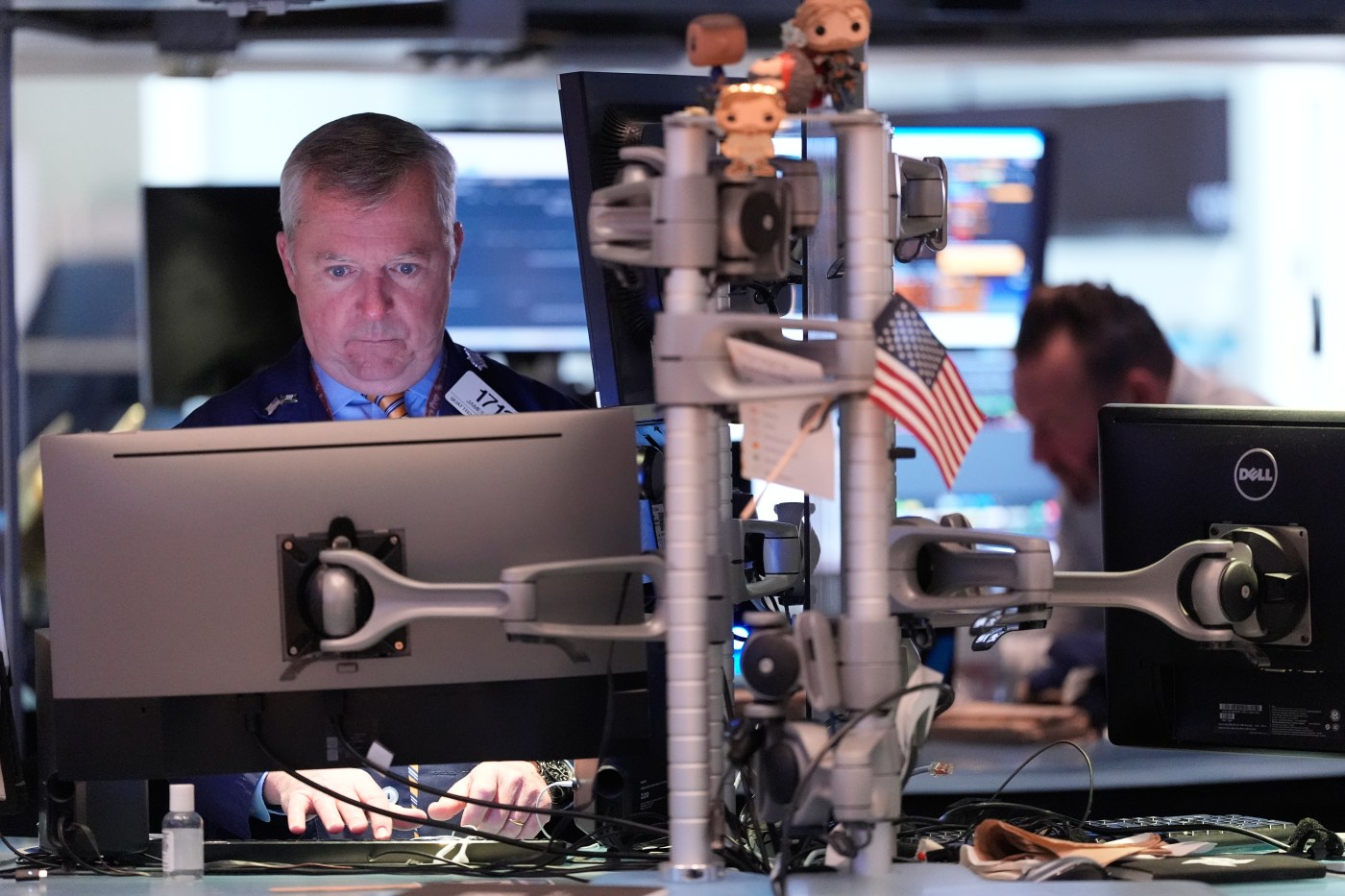Top Stories
U.S. Stock Market Plummets as Nvidia and Bitcoin Sink Further

URGENT UPDATE: The U.S. stock market has plunged as of Monday, with significant losses primarily driven by declines in tech giants like Nvidia and the cryptocurrency market. The S&P 500 fell sharply by 0.9%, while the Dow Jones Industrial Average dropped a staggering 557 points or 1.2%. The Nasdaq Composite also saw a decline, sinking 0.8%.
The heavyweights of AI technology, particularly Nvidia, continue to drag the market down. Nvidia’s shares fell 1.8%, contributing to a trend that has seen it underperform in recent weeks. Other AI-related stocks, like Super Micro Computer, plummeted by 6.4%. This downturn comes as Bitcoin has fallen below $92,000, a significant drop from nearly $125,000 just last month. As a result, major cryptocurrency exchanges like Coinbase Global and Robinhood Markets suffered, with shares down 7.1% and 5.3% respectively.
Analysts are voicing concerns that the U.S. stock market is poised for further declines, especially given the rapid price increases observed since April. The primary focus remains on stocks that have soared due to AI hype, and the pressure is mounting as Nvidia prepares to release its summer profit report this Wednesday. Despite the recent losses, Nvidia’s stock remains up 39% for the year, illustrating the volatility and high expectations surrounding AI stocks.
Adding to the uncertainty, Aramark reported a disappointing quarterly profit, causing its shares to fall 5.2%. This disappointing result, coupled with a lower-than-expected profit growth forecast of 20% to 25% for the coming year, further unsettled investors. Conversely, Alphabet rose 3.1% after Berkshire Hathaway, led by famed investor Warren Buffett, announced a substantial $4.34 billion investment in the tech giant.
As Wall Street anticipates the Federal Reserve’s next steps regarding interest rates, market volatility is expected to continue. The delayed September jobs report is set to be released on Thursday, which could lead to further fluctuations. Strong job data might deter the Fed from cutting interest rates, while weak data could heighten fears about the economy’s health.
In a statement, Barry Bannister, chief equity strategist at Stifel, emphasized that the era of easy monetary policy is ending, suggesting that the Fed’s “free lunch” is over. This shift could signal a challenging environment for stock prices moving forward.
The market landscape remains tense as investors await critical updates this week. With expectations running high and uncertainty looming, the implications of these developments could resonate across global markets. Stay tuned for updates as this story unfolds.
-

 Science3 weeks ago
Science3 weeks agoOhio State Study Uncovers Brain Connectivity and Function Links
-

 Politics3 weeks ago
Politics3 weeks agoHamas Chief Stresses Disarmament Tied to Occupation’s End
-

 Entertainment3 weeks ago
Entertainment3 weeks agoMegan Thee Stallion Exposes Alleged Online Attack by Bots
-

 Science1 month ago
Science1 month agoResearchers Challenge 200-Year-Old Physics Principle with Atomic Engines
-

 Entertainment3 weeks ago
Entertainment3 weeks agoPaloma Elsesser Shines at LA Event with Iconic Slicked-Back Bun
-

 World3 weeks ago
World3 weeks agoFDA Unveils Plan to Cut Drug Prices and Boost Biosimilars
-

 Top Stories3 weeks ago
Top Stories3 weeks agoFederal Agents Detain Driver in Addison; Protests Erupt Immediately
-

 Business3 weeks ago
Business3 weeks agoMotley Fool Wealth Management Reduces Medtronic Holdings by 14.7%
-

 Entertainment3 weeks ago
Entertainment3 weeks agoBeloved Artist and Community Leader Gloria Rosencrants Passes Away
-

 Politics1 month ago
Politics1 month agoNHP Foundation Secures Land for 158 Affordable Apartments in Denver
-

 Science2 weeks ago
Science2 weeks agoUniversity of Hawaiʻi Joins $25.6M AI Project for Disaster Monitoring
-

 Top Stories3 weeks ago
Top Stories3 weeks agoOrioles Hire Craig Albernaz as New Manager Amid Rebuild









